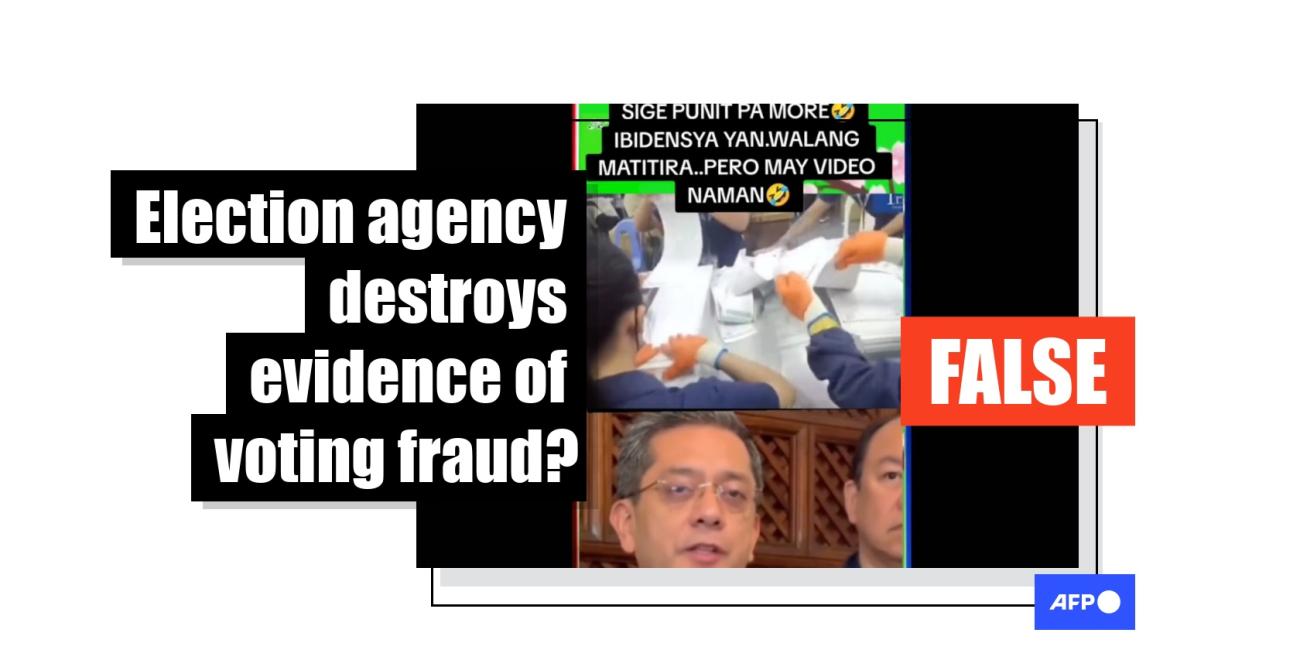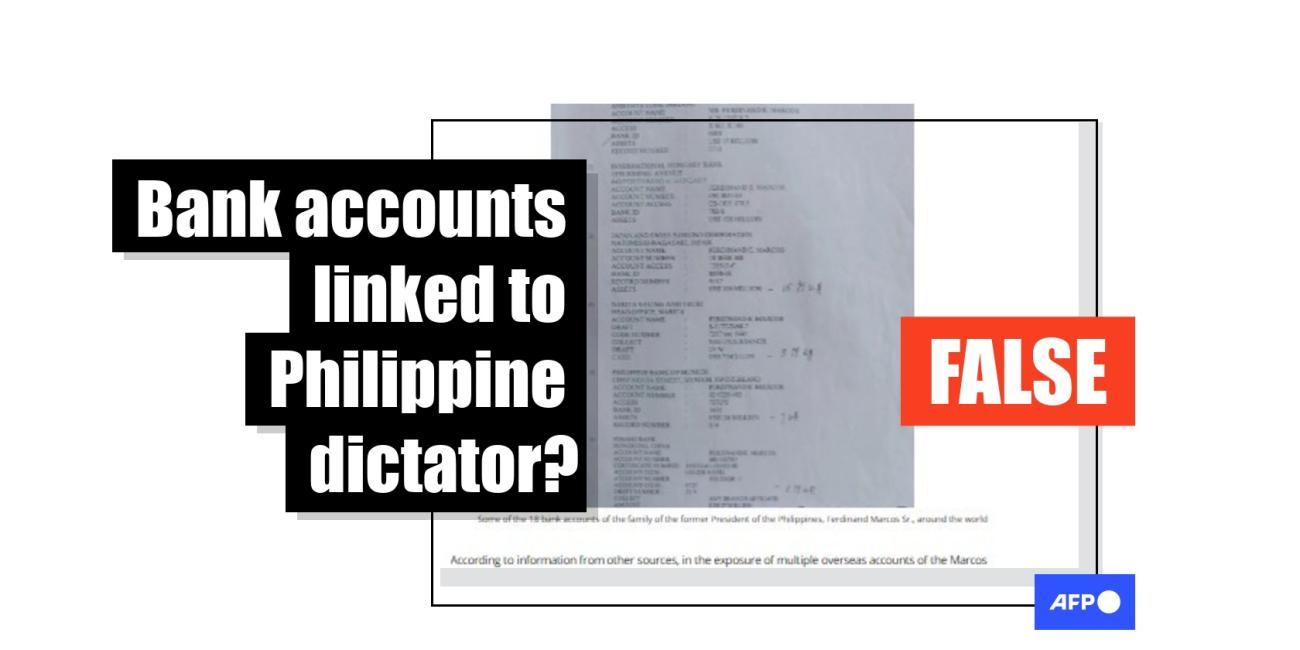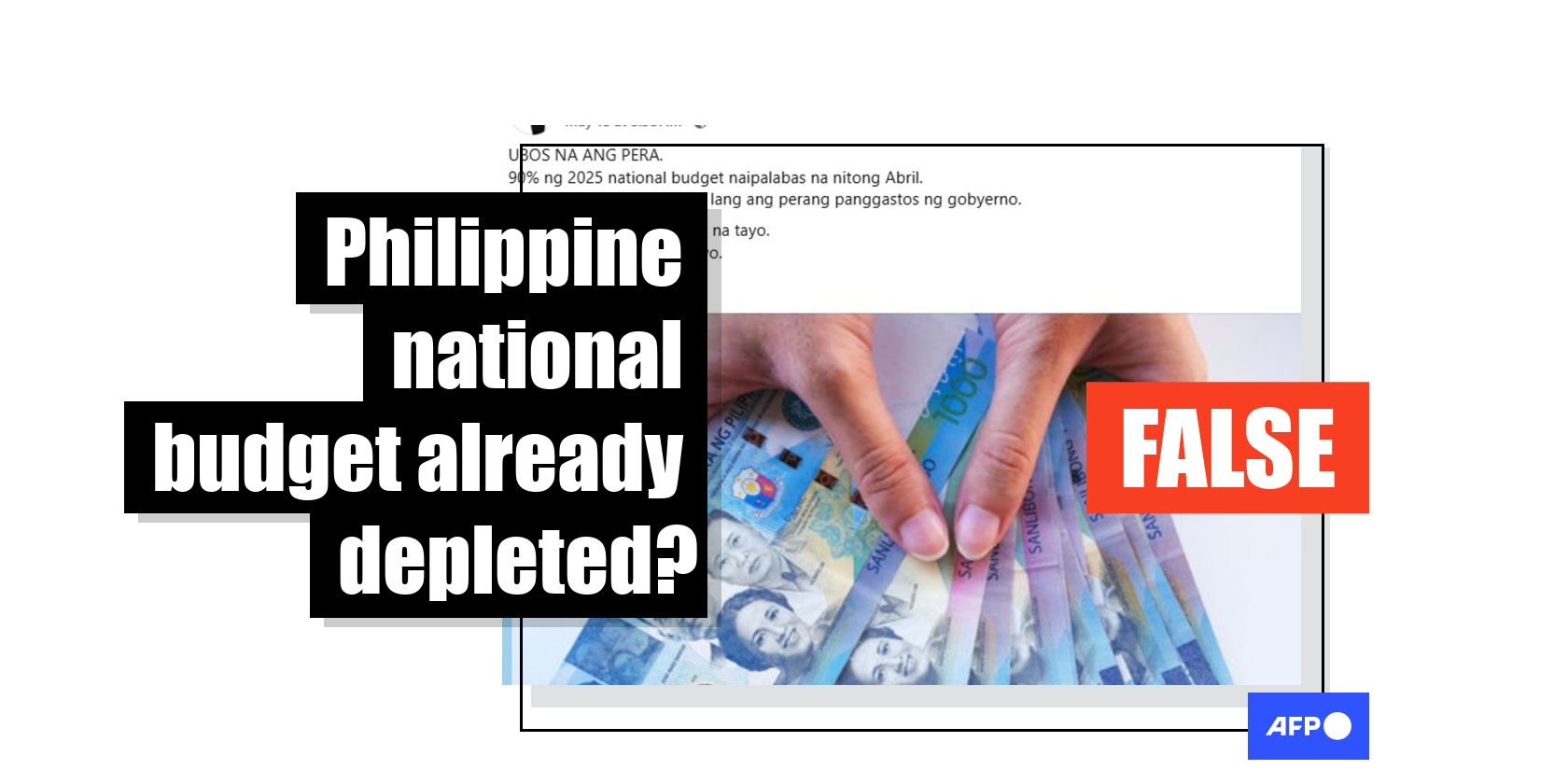
Posts mispresent budget data to falsely claim Philippines 'out of money'
- Published on June 3, 2025 at 10:31
- 3 min read
- By Ara Eugenio, AFP Philippines
The claim stems from a May 18, 2025 Tagalog-language Facebook post published by Jay Sonza, a former broadcaster and supporter of former president Rodrigo Duterte who has previously spread misinformation debunked by AFP.
Sonza says the Philippine government is "out of money", as 90 percent of the year's national budget -- which stands at a record 6.33 trillion pesos (around US$114 billion) -- had already been "released" by April (archived link).
"It's only May, and the government only has 10 percent of its funds left," he adds, pointing to government borrowing in February and April as signs of financial depletion.
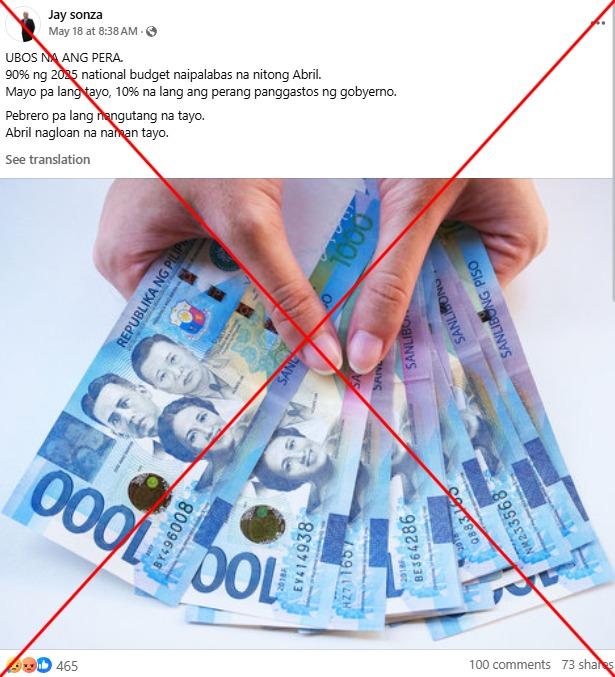
The claim surfaced a week after the Philippine mid-term elections on May 12, which delivered disappointing results for President Ferdinand Marcos's party (archived link).
Seen as a referendum on the current administration, the polls saw only six of the 11 Marcos-endorsed candidates win Senate seats (archived link).
They will join 12 incumbent senators as jurors in the impeachment trial of embattled Vice President Sara Duterte, which could see the Marcos rival permanently barred from public office if convicted.
The claim has spread in similar posts on Facebook, drawing comments from users who believed the government had indeed depleted its annual budget.
"Where did all that money go?" one said.
Another commented: "We must hold another People Power to replace them," alluding to the peaceful uprising that toppled the dictatorship of the president’s late father, Ferdinand Marcos Sr.
The elder Marcos's 20-year rule left the country impoverished, with an estimated US$10 billion stolen from state coffers (archived link).
But multiple experts told AFP the claim misrepresents how the government plans and uses the national budget.
'Standard practice'
Public finance specialist Janet Cuenca of the Ateneo School of Government told AFP on May 27 that the figure cited by Sonza refers to "allotment releases" -- a notice that funding has been reserved for agencies -- and not actual spending (archived link).
She said this practice allows agencies to begin planning and committing to expenses, such as signing contracts or hiring staff. They must still provide proper documentation to the Department of Budget and Management (DBM) before they are authorised to access the funds.
Goddes Hope Libiran, undersecretary of the DBM, said the early release of funds is a "consistent practice" backed by data from the past decade (archived link).
"(This) does not mean the funds have been spent or 'used up,'" Libiran told AFP on May 20. "It only means the funds are readily available to agencies so they can implement their specific programs, activities and projects without delay."
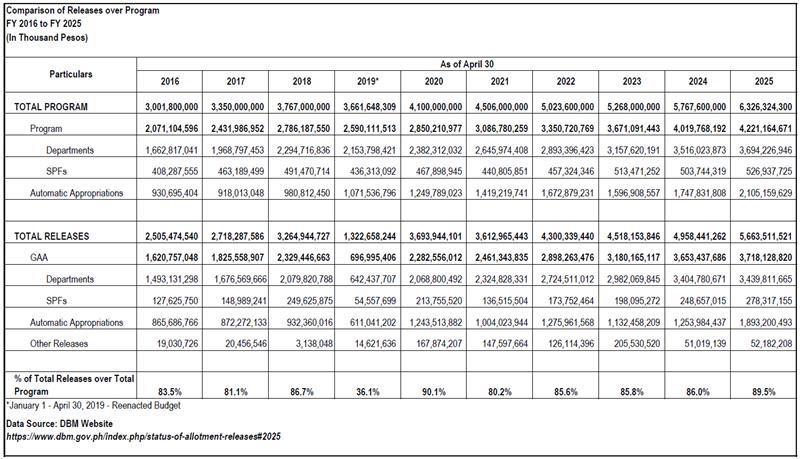
Data from the Bureau of the Treasury show actual spending from January to April 2025 amounted to 1.21 trillion pesos (US$21.8 billion) -- just under 20 percent of the approved national budget (archived link).
Economist Victor Abola of the University of Asia and the Pacific also said the idea that government borrowing early in the year means funds have run dry is "misinformation" (archived link).
"The government tries to pre-fund its needs to avoid paying higher interest rates," he told AFP on May 21, explaining that borrowing early helps manage costs when rates are expected to rise later in the year.
"It's standard practice to pre-fund, sometimes even in the previous year," he added, noting the national government cannot simply run out of funds because "it can always go to the central bank if needed."
The Philippine central bank can help manage cash flow by providing liquidity through reserves or other financing options (archived link).
AFP has previously debunked claims about the Philippines' economic standing.
Copyright © AFP 2017-2026. Any commercial use of this content requires a subscription. Click here to find out more.
Is there content that you would like AFP to fact-check? Get in touch.
Contact us
